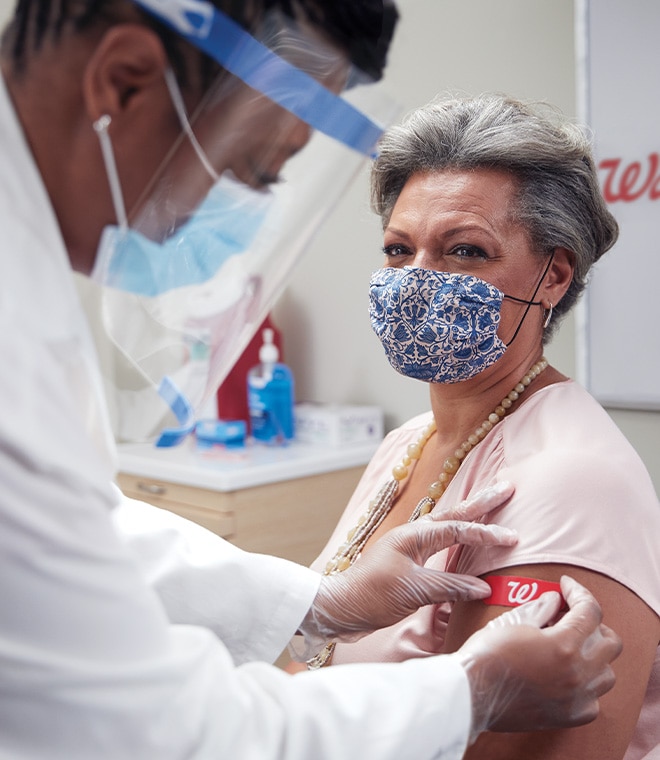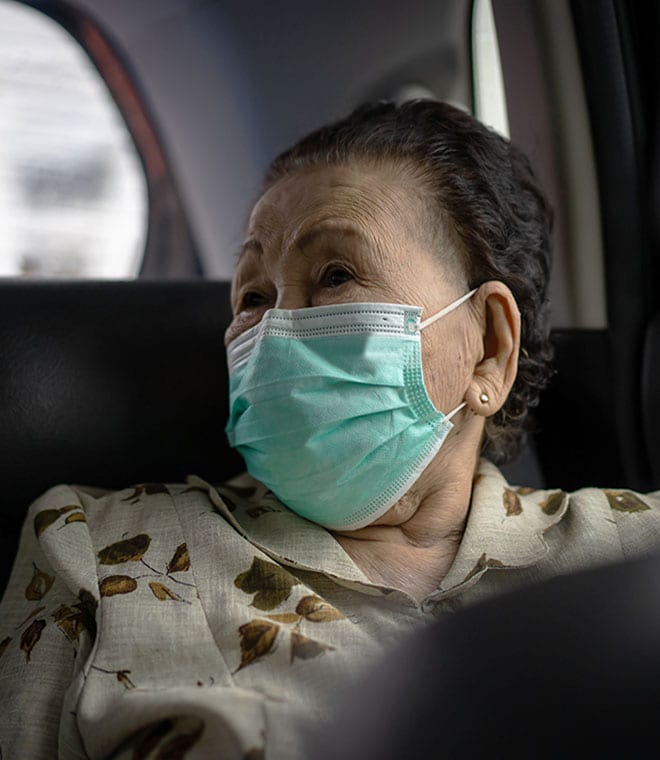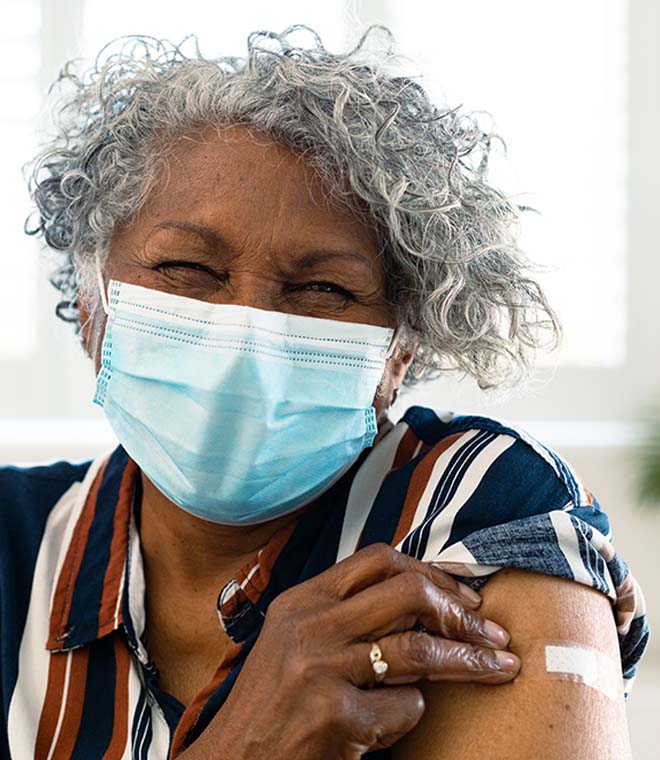Health
How different COVID-19 vaccines work
By Jenilee Matz, MPH Nov 06, 2023 • 6 min
All COVID-19 vaccines available in the U.S. have been shown to be safe and effective. Each vaccine works with your immune system to protect you if you're exposed to the virus that causes COVID-19. Learn the basics on available vaccines and how they work to protect you from COVID-19.
Immune system basics
To understand how the COVID-19 vaccines work, it helps to know how your immune system fights illnesses. When SARS-CoV-2, the virus that causes COVID-19, invades your body, you develop an infection. The body has several types of white blood cells, and each helps to fight off the infection:
- Macrophages consume germs and dead or dying cells. They leave behind parts of germs, which are called antigens. Your body sees antigens as harmful and creates antibodies to attack them.
- B-lymphocytes make antibodies that attack the parts of the virus that macrophages left behind.
- T-lymphocytes, or memory cells, attack cells that are infected with the virus.
The first time you're infected with a certain germ, it can take days or weeks for your body to create this immune response. After you recover from the infection, your immune system remembers how to guard you against the germ in the future. In fact, the body keeps a few memory cells for a set amount of time. If you get infected with the same germ again, these memory cells can spring into action to protect you. In addition, B-lymphocytes produce antibodies to attack the germ. Note that it isn't known yet how long memory cells protect you against the virus that causes COVID-19.
How vaccines help
Vaccines allow you to build an immune response to the virus that causes COVID-19 without getting sick. There are three types of COVID-19 vaccines, and each works differently:
Messenger RNA (mRNA) vaccines deliver a genetic template, mRNA, of a harmless piece of the virus, called a spike protein, into the body's cells. In other words, mRNA gives instructions to the cells for how to make the spike protein. The cells make a small portion of the spike protein without causing illness. (After they make the spike protein, the cells destroy the instructions.) The body realizes that the protein doesn't belong there and makes T-lymphocytes and B-lymphocytes to fight off what it thinks is an infection. If you're exposed to COVID-19 in the future, your cells will remember the virus and protect you.
Viral vector vaccines involve putting instructions for how to make the spike protein into a weakened version of a safer virus, such as one that causes the common cold. This is called a viral vector. Once you receive the vaccine, it enters the cells and tells them to make the spike protein. This causes your body to make T-lymphocytes and B-lymphocytes. These white blood cells will remember how to fight off COVID-19 if you're ever exposed to the virus. As of May 2023, viral vector vaccines for COVID-19 are no longer available in the United States.
Protein-based vaccines inject a harmless piece of the spike protein into your body. Your cells will realize the protein doesn't belong there and will react by making T-lymphocytes and antibodies. If you're exposed to COVID-19 in the future, your body will remember how to defend you from the virus.
What to expect if you get the vaccine
Some COVID-19 vaccines require two shots, given a few weeks apart. The first shot allows your body to start building protection. Then, you'll need the second shot to gain the most protection the vaccine provides.
The vaccines cannot give you a COVID-19 infection. However, after you've been vaccinated, it normally takes the body a few weeks to make T-lymphocytes and B-lymphocytes. This means that you could get COVID-19 after you receive the vaccine if the vaccine didn't have enough time to work.
In some cases, you can have side effects after receiving the COVID-19 vaccine, such as fever, chills or tiredness. This is a sign that your body is building protection to the virus. Contact your healthcare provider if your symptoms are worrisome or if they don't improve after a few days.
The take-home message
All COVID-19 vaccines available in the U.S. have been rigorously studied for safety. They have each been shown to help prevent illness and reduce disease severity. Receiving the COVID-19 vaccine is one of several actions you can take to protect yourself and others from getting sick. If you have questions about the COVID-19 vaccine, talk to your healthcare provider.
Clinically reviewed and updated November 2023.
Sources:
- https://www.cdc.gov/coronavirus/2019-ncov/vaccines/different-vaccines/how-they-work.html
- https://www.cdc.gov/coronavirus/2019-ncov/downloads/vaccines/COVID-19-mRNA-infographic_G_508.pdf
- https://www.cdc.gov/coronavirus/2019-ncov/vaccines/different-vaccines/viralvector.html
- https://stacks.cdc.gov/view/cdc/108920
- https://www.cdc.gov/coronavirus/2019-ncov/vaccines/expect.html
- https://www.cdc.gov/vaccines/hcp/patient-ed/conversations/downloads/vacsafe-understand-bw-office.pdf
- https://www.cdc.gov/coronavirus/2019-ncov/vaccines/different-vaccines/overview-COVID-19-vaccines.html


